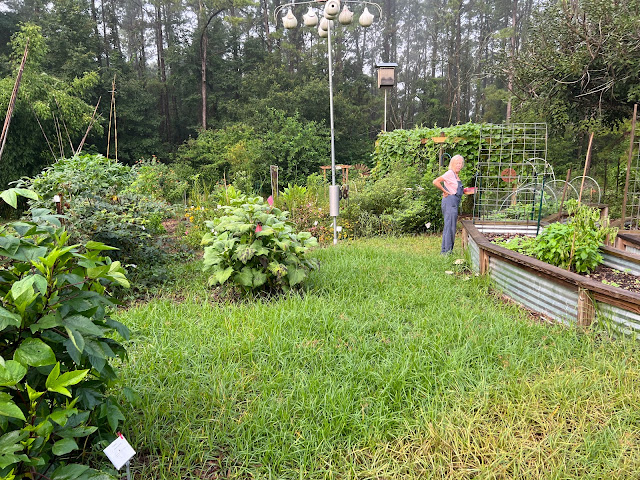
Nutgrass Explosion
The copious summer rains have produced an epidemic of nutgrass in the VegHeadz garden. An area we took over to expand the garden about eight years ago was covered in nutgrass. We dug and poisoned and smothered so we could plant there and have kept it pretty well at bay for all these years.
But the tubers have been lurking in the soil and this year’s conditions put them in overdrive.
What we call Nutgrass is not a grass and chemical herbicides rated for grass will not work on it. It is actually Nutsedge (Cyperus esculentus). There are two varieties and specific herbicides may only work on one type, so it’s important to know which you have.
Master Gardener Glenn Berman located an excellent article from Clemson University which will help you determine what type of nutsedge you are plagued with and the best way to fight it.
It lists different remedies depending on what plantings are in the same area. Commercial chemical remedies are updated all the time and this article was updated in 2021 so it’s relatively recent.
We plan to try several of the remedies listed to test what works best in our garden. We’ll keep you posted.
Clemson University Article on Nutsedge
Update:

Purple Nutsedge
Our Nutsedge has been identified as Purple Nutsedge. Various options and chemicals suitable for use in a vegetable garden are being discussed with no clear solution apparent. As the article discussed, several options will likely be necessary. Our frustration was well expressed by Extension Agent Mark Tancig when he said, “ Unfortunately, I don’t think there is any way forward that easily eliminates/minimizes nutsedge. It’s a constant headache.”
He went in to add: “ In general, herbicide shouldn’t be applied after a mowing or trimming. The plant stresses out and ends up taking in less of the active ingredient. There may be some language on the label about this. Some labels will say to wait three to four days after mowing to spray. Also, the more leaf tissue, the more likely the herbicide absorbs into the foliage. None of these herbicides – glyphosate, halosulfuron – work through the soil/root uptake.
“The other option, and what we had in the 4-H garden, is to lay the thick black weed barrier down and keep it swept off. I don’t think herbicides are going to eliminate it.”
No comments:
Post a Comment